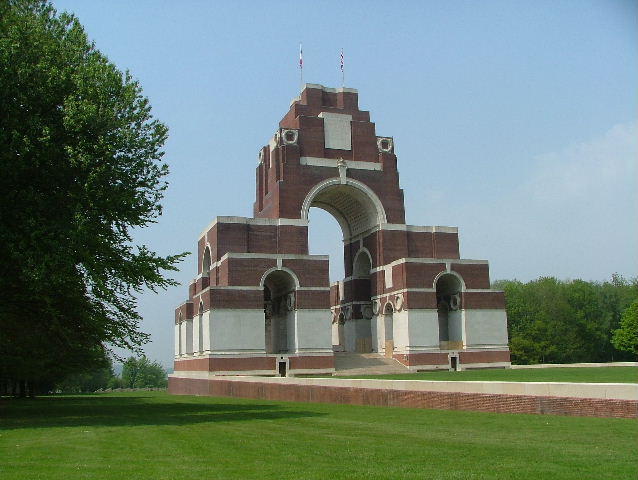Name
Frederick James Flatt
Conflict
First World War
Date of Death / Age
15/07/1916
34
Rank, Service Number & Service Details
Private
L/11007
Duke of Cambidge’s Own (Middlesex) Regiment
1st Bn.
Awards: Service Medals/Honour Awards
1914 (Mons) Star, British War and Victory Medals
Cemetery/Memorial: Name/Reference/Country
THIEPVAL MEMORIAL
Pier and Face 12 D and 13 B
France
Headstone Inscription
NA
UK & Other Memorials
Rickmansworth Urban District Memorial, St. Peter’s Church Memorial, Mill End, Nr Rickmansworth
Pre War
Frederick James was born in 1882 in Homerton, Hackney, the son of James, a Bricklayer's Labourer and Caroline (nee Phillips) Flatt.
In 1891 the family was living South Street, West Ham. On the 1901 census he was recorded as Frederick Exton boarding with Giovanni Di Lena age 47, born Italy, at 92 Elthorne Road, Islington. Mr Di Lena is noted as his “Master” in his attestation records. Frederick enlisted in the East Surrey Regiment as a Militiaman, Private No 2348, on 19/04/1901. He was aged 18 years 8 months, a Labourer, and single.
He was released early from the East Surrey’s to enlist in the Middlesex Regiment, which he did as James Flatt, a Costermonger, on 5/2/1906. James, as he was now known, served in India from c1902 to c1911 but was sent home prematurely and posted to Gosport. James transferred to the Army Reserve on 01.02.1913 classified as a Nursing Orderly.
In 1913 Frederick James married Alice Mabel Wright, probably in Rickmansworth, and their daughter Mabel Kezia, was born 18/8/1914.
When Frederick died his wife was living Dellhall Cottages Mill End. In 1918 she married Frederick’s brother Alfred and about a year later they emigrated to Australia where their son Alfred Jabez was born in 1920.
Recorded as enlisting in Stratford, Essex.
Wartime Service
He was mobilised at Mill Hill 5/8/1914 landed Le Havre 11/8/1914.
After several transfers 1st Battalion finally ended up with 98th Brigade 33rd Division on 25/11/1915 having already seen many actions.
James was presumed dead on or after 15/7/1916 and probably died during the battle of Bazentin Ridge 14th to 17th of July. On the morning of the 15th 1st Battalion attacked the German Switch Trench starting from Bazentin-le-Petit. They soon came under rifle and machine gun fire and then an artillery barrage. After attempting to “dig in” they were eventually forced to retreat to their start line.
Battalion casualties that day were 50 killed, 208 wounded 63 missing.
Acknowledgments
Mike Collins



